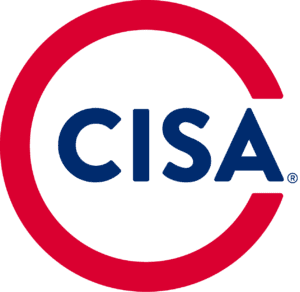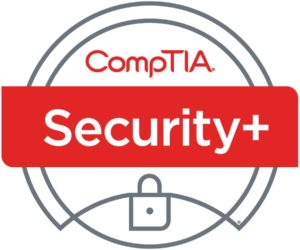Cybersecurity certifications have become an important factor for addressing the massively increasing vacancies in the security field. Fortunately, there are many traditional on-campus and online programs covering different domains and professional levels for cybersecurity certifications.
In this article, we discuss cybersecurity certification, the best certifications for cybersecurity professionals, and who needs a cybersecurity certification.
Read more: Best Server Security Services for 2021
What Is a Cybersecurity Certification?
A cybersecurity certification is an acknowledgment by a professional board that the certificate holder meets the standards of knowledge and skills required to be an effective worker in the cybersecurity field.
Almost 80% of IT security leaders lack confidence in their organization’s cybersecurity posture.
Cybersecurity is a series of practices and technologies to protect servers, computers, mobile devices, internet-connected systems, networks, and data from cyber threats. According to Cyberseek, there were 464,420 cybersecurity job openings in the United States from April 2020 to March 2021. And according to Forbes, almost 80% of IT security leaders lack confidence in their organization’s cybersecurity posture.
The candidates for cybersecurity jobs need proof of solid cybersecurity skills if they hope to fill positions. Cybersecurity certifications are one of the best ways to represent these skills.
What Is the Best Cybersecurity Certification?
There are a lot of traditional on-campus and online programs for cybersecurity certifications. These are focused on different domains and professional levels, with each focused on specific purposes. These are the top five cybersecurity certifications that can advance your career.
Certified Information Systems Security Professional (CISSP)
 The CISSP-ISSMP is a substantive cybersecurity management certification for experienced security practitioners, managers, and executives. CISSP acknowledges expertise in cybersecurity architecture, engineering, or management.
The CISSP-ISSMP is a substantive cybersecurity management certification for experienced security practitioners, managers, and executives. CISSP acknowledges expertise in cybersecurity architecture, engineering, or management.
CISSP certification is offered by the International Information System Security Certification Consortium (ISC)², and formally approved by ANSI ISO/IEC Standard 17024:2003. The working committee formed in 1990, and the first CISSP credential was launched in 1994.
Check out this Certified Information Systems Security Professional CISSP Course!
The eight domains covered by the CISSP curriculum are:
- Security and Risk Management
- Asset Security
- Security Engineering
- Communication and Network Security
- Identity and Access Management
- Security Assessment and Testing
- Security Operations
- Software Development Security
Certified Information Security Manager (CISM)
 CISM is an advanced IT certification for information security, information systems auditing, and IT governance professionals. CISM acknowledges expertise in information security governance, incident management, program development and management, and risk management.
CISM is an advanced IT certification for information security, information systems auditing, and IT governance professionals. CISM acknowledges expertise in information security governance, incident management, program development and management, and risk management.
CISM certification is offered by the Information Systems Audit and Control Association (ISACA), and formally approved by ANSI ISO/IEC Standard 17024:2012. CISM was established in 2002.
Check out this Certified Information Security Manager (CISM) course!
The four domains covered by the CISM curriculum are:
- Information Security Governance
- Information Risk Management and Compliance
- Information Security Program Development and Management
- Information Security Incident Management
Certified in Risk and Information Systems Control (CRISC)
 CRISC is a vendor-neutral certification for mid-career IT/IS audit, risk, and security professionals. CRISC acknowledges expertise in building a well-defined security posture based on best practices to identify, analyze, evaluate, assess, prioritize, and respond to risks.
CRISC is a vendor-neutral certification for mid-career IT/IS audit, risk, and security professionals. CRISC acknowledges expertise in building a well-defined security posture based on best practices to identify, analyze, evaluate, assess, prioritize, and respond to risks.
CRISC certification is offered by the Information Systems Audit and Control Association (ISACA), and formally approved by ANSI ISO/IEC Standard 17024:2012. CRISC was established in 2010.
Check out this Certified Risk and Information System Control (CRISC-ISACA course!
The four domains covered by the CRISC curriculum are:
- Governance
- Information Technology Risk Assessment
- Risk Response and Reporting
- Information Technology and Security
Certified Information Systems Auditor (CISA)
 CISA is a foundational certification for an entry-level to mid-career professional. CISA acknowledges expertise in auditing, controlling, monitoring, and assessing an organization’s IT and business systems.
CISA is a foundational certification for an entry-level to mid-career professional. CISA acknowledges expertise in auditing, controlling, monitoring, and assessing an organization’s IT and business systems.
CISA certification is offered by the Information Systems Audit and Control Association (ISACA), and formally approved by ANSI ISO/IEC Standard 17024:2012. CISA was established in 1978.
Check out this course for ISACA Certified Information Systems Auditor (CISA) certification.
The five domains covered by the CRISC curriculum are:
- Information Systems and Auditing Process
- Governance and Management of Information Technology
- Information Systems Acquisition, Development, and Implementation
- Information Systems Operations and Business Resilience
- Protection of Information Assets
CompTIA Security+
 CompTIA Security+ is a vendor-neutral security certification for an entry-level to mid-career professional. Security+ acknowledges expertise in cyber defense infrastructure support, cybersecurity management, digital forensics, systems analysis, and vulnerability assessment and management.
CompTIA Security+ is a vendor-neutral security certification for an entry-level to mid-career professional. Security+ acknowledges expertise in cyber defense infrastructure support, cybersecurity management, digital forensics, systems analysis, and vulnerability assessment and management.
Security+ certification is offered by the Computing Technology Industry Association (CompTIA), and formally approved by ANSI ISO/IEC Standard 17024. The first CompTIA Security+ credential was launched in 2017.
Check out this course for CompTIA Security+.
The six domains covered by the CompTIA Security+ curriculum are:
- Threats, Attacks, and Vulnerabilities
- Identity and Access Management
- Technologies and Tools
- Risk Management
- Security Architecture and Design
- Cryptography and PKI
Who Needs a Cybersecurity Certification?
There are a lot of positions at all professional levels that require cybersecurity certifications. These are the most common job positions that require cybersecurity certifications.
Chief Information Security Officer
A Chief Information Security Officer (CISO) is responsible for the information security policies and procedures of an organization, including strategic, operational, and budgetary decisions. They lead teams of information security specialists, computer analysts, and comparable professionals to ensure overall security.
Top certifications for a CISO include:
- Certified Chief Information Security Officer (CCISO)
- Certified Information Systems Security Professional (CISSP)
- Offensive Security Certified Professional (OSCP)
Cybersecurity Administrator
A Cybersecurity Administrator is responsible for installing, controlling, and supervising the system for any activity. A security administrator understands the entire system and keeps it secure and optimal.
Top certifications for a Security Administrator include:
- EC-Council Network Security Administrator (ENSA)
- Certified Information Systems Security Professional (CISSP)
- CompTIA Security+
Cybersecurity Manager
A Cybersecurity Manager is responsible for planning, implementing, and monitoring the security of information systems and networks with collaborative work styles. They understand business functions and balance security needs.
Top certifications for a Cybersecurity Manager include:
- Certified Information Security Manager (CISM)
- Certified Information Systems Security Professional (CISSP)
- Certified Security Project Manager (CSPM)
Cybersecurity Specialist
A Cybersecurity Specialist is responsible for the management and monitoring of any attacks and intrusions into software systems, networks, and data centers. They also provide security during development stages by detecting weaknesses and risks in hardware and software.
Top certifications for a Cybersecurity Specialist include:
- Certified Information Systems Security Professional (CISSP)
- Certified Ethical Hacker (CEH)
- CompTIA Security+
Security Architect
A Security Architect is responsible for creating, planning, and implementing security solutions for an organization. They are knowledgeable in cybersecurity, risk management, computers, and network systems.
Top certifications for a Security Architect include:
- GIAC Defensible Security Architecture (GDSA)
- Certified Network Defense Architect (CNDA)
- Certified Information Systems Security Professional (CISSP)
The Need for Cybersecurity Jobs Is Growing
According to eSecurity Planet, “There is already a 0% unemployment rate in the security field. That rate has stayed consistent since 2011 and shows no sign of changing.” Given the high demand in this field, obtaining one or more cybersecurity certifications can help candidates get the right job.
Read next: Best Server Security Tools for 2021

